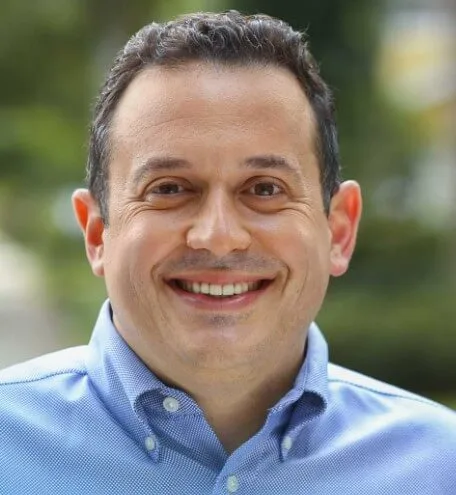
Image via AP Photo/Carlos Giusti
Experts worry that two upcoming holidays could create a resurgence of COVID-19 on the island. They agree waiting longer for a total reopening is the safest thing to do.
San Juan — After 92 days of lockdown, Puerto Rico is ready to enter a wider phase of reopening next Tuesday. This includes the authorization for the functioning of stores, gyms, restaurants at 50% capacity, and daycare centers. But experts Dr. Antonia Coello de Novello and Danilo Trinidad Pérez Rivera told The Americano they see the move as rushed and a cause for concern.
RELATED: Is the Reopening Causing a New Spike in Coronavirus Cases in Puerto Rico?
Puerto Rico was one of the first jurisdictions in the U.S. and the Caribbean to implement a lockdown on March 16. The low amount of testing and inaccuracy in the number of reported positive cases have been the main setbacks during the pandemic on the island.
“Everything we were doing so well could be reversed by this quick, sudden, and wide reopening,” said Dr. Coello de Novello.
According to Pérez Rivera, the Puerto Rico government has dealt with the pandemic emergency by reacting instead of preventing it.
“That emphasis on maintaining health and well-being in Puerto Rico —remedying problems as they come along — instead of taking preventative measures, has brought us to this point,” Pérez Rivera told The Americano, warning that “this comes at a cost.”
A New Way of Reporting Cases
Last Thursday, the Health Department started to report contagion numbers separating them in “confirmed” and “possible” cases—the first being based on molecular tests that show the presence of the virus, while the latter reflects the results of serological tests, which antibodies.
As of Monday, confirmed cases amounted to 1,477, with possible cases at 4,413. Dr. Coello de Novello, 14th Surgeon General of the United States, says the change in the way the number of cases is reported can be confusing to people.
“This reporting of numbers is a bit dangerous, because people could assume that cases dropped from 5,360 to 1,440 from one day to the next,” the doctor said. “They are thinking the pandemic is gone, and that’s not what the reopening means. Life has not returned to normal just because the country is reopening for economic sustenance.”
Pérez Rivera, one of the scientists in Puerto Rico’s Coalición de Sabiduría Coronavirus (COSACO by its Spanish initials), an initiative working to provide accurate data, disagrees with a Washington Post article that places the island — alongside 14 states — as one of the places experiencing highest seven-day averages after reopening. His disagreement is mainly based on the fact that the newspaper did not take into account the adjustments the Health Department has been making with new and previous cases in the past weeks.
The expert explained it doesn’t mean the island is in a good position currently. He and his colleagues know that the risk of infection in Puerto Rico is higher than the government is saying.
RELATED: Puerto Rico Gov. Vázquez Threatens Imposing Stricter Measures If Citizens Ignore Safety Mandates
Besides the data provided by the Health Department on hand, COSACO bases its analysis on other sources of information, which leads them to conclude the island now has fewer cases of coronavirus infection than about a month ago. They estimate the spike in the contagion happened sometime between the end of April and beginning of May.
In the past few weeks, hospitalizations, intensive cases, and deaths have remained stable. That is a good sign, but according to scientists, it is not enough to make such a wide reopening just yet.
“We have fewer cases of COVID-19 going to intensive care. Every day we have fewer cases, soon we’ll be down to zero,” Pérez Rivera explained, highlighting that in two weeks the number of people hospitalized has steadily remained at 100 per day for the entire island. “If those numbers remained stable two weeks ago, it’s because there wasn’t a general increase in cases,” Pérez Rivera said.
Why Is Reopening This Week so Dangerous?
Dr. Coello thinks it would have made more sense to wait two weeks before a wider reopening of the island. She considers Governor Wanda Vázquez should have wait for a steady decrease in reported new cases for 14 consecutive days, as the Centers for Disease Control and Prevention (CDC) recommend.
The doctor is especially concerned with the reopening of gyms, churches, and movie theaters. Gyms and churches are prone to droplet dispersion because they are enclosed in indoor environments.
Church choirs, in particular, must be carefully considered, the doctor said. “When you sing, scream, or speak loudly, microdroplets of the virus from infected people go into the air and linger from eight to 20 minutes.”
The expert is also concerned about two holidays coming up this month. One of them is the Noche de San Juan, the traditional observation of Saint John the Baptist’s birthday. Traditionally, on the evening of June, 23 people visit beaches at night time, plunging backwards into the ocean three times in a row at the stroke of midnight for good luck. The other one is Father’s Day, which will likely mean many family reunions.
Dr. Coello thinks the government should have waited after both holidays to reopen. “Crowds will be present en masse, given what they feel is a license to congregate. If numbers are reported as they should be, I fear there will be a tremendous increase,” he said.
Pérez Rivera agreed the further reopening is too hasty. He trusts people will exercise better judgment, considering they have more information to work with as compared to when the pandemic started. His main concern is how the government is opening almost everything. Many will have to go back to work even if they want to stay home.
“The government cannot delegate responsibility,” Pérez Rivera says. “As individuals, we’re not empowered to regulate ourselves. I don’t know how the government intends to put the ball in our court if they don’t do their part. I think it’s a lack of respect.”
RELATED: What We Know About Puerto Rico’s New Labor Department Boss — And What He Plans To Do
Politics

Teamsters and UPS Reach Tentative Deal to Avoid Strike, 340,000 Workers to Get Raises
The tentative deal represents a huge win for full- and part-time UPS Teamster workers, who would get significant pay raises and better working...



One Republican Senator Is Blocking 265 Military Promotions, Leaving the Marines Without a Confirmed Leader
Sen. Tommy Tuberville's decision means these military officers are not getting the pay raises they’re owed, cannot move their families to wherever...
Local News



Teamsters and UPS Reach Tentative Deal to Avoid Strike, 340,000 Workers to Get Raises
The tentative deal represents a huge win for full- and part-time UPS Teamster workers, who would get significant pay raises and better working...



One Republican Senator Is Blocking 265 Military Promotions, Leaving the Marines Without a Confirmed Leader
Sen. Tommy Tuberville's decision means these military officers are not getting the pay raises they’re owed, cannot move their families to wherever...




